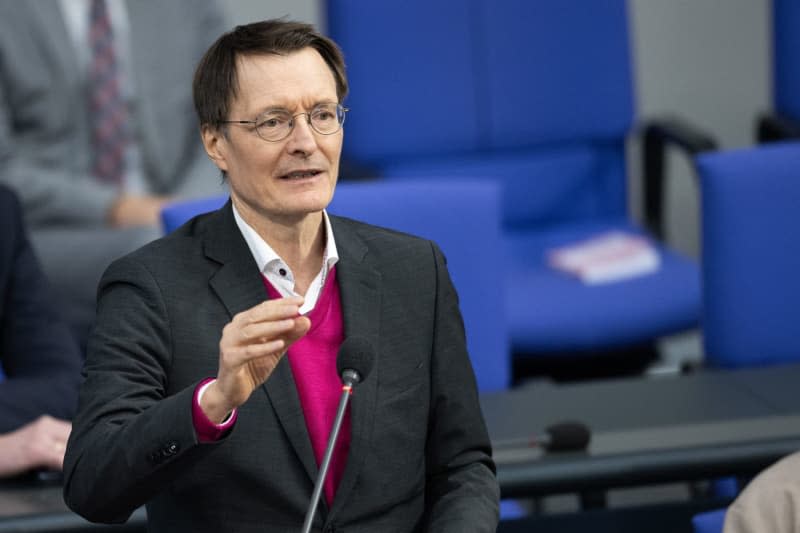German lower house passes law to partially legalize cannabis

- Oops!Something went wrong.Please try again later.
Germany's lower house of parliament voted in favour of a law to partially legalize the possession and cultivation of cannabis on Friday.
The vote clears another hurdle in Chancellor Olaf Scholz's coalition government's plans for limited legal availability of cannabis with numerous rules, regulations and restrictions.
A majority of 407 members of parliament voted in favour, with 226 against and four abstentions.
The law is expected to be passed by the upper house of parliament, or Bundesrat, on March 22.
Starting from April 1, adults would be able to grow up to three cannabis plants at home and possess 50 grams there. In public, adults will be allowed to have up to 25 grams for their own consumption.
As of July 1, clubs will be allowed for joint cultivation.
"This is an important improvement in our drug policy," Health Minister Karl Lauterbach said on Thursday before the vote was passed.
"With this law, we will achieve a significant reduction in the black market, better protection for children and young people and a safer product for older consumers."
Health expert Kirsten Kappert-Gonther of the Green Party said on Friday that the partial legalization would strengthen the protection of health and young people.
Health politician Kristine Lütke of the junior coalition partner Free Democrats (FDP) spoke of a "historic turning point" towards an approach that reflects social reality. With home-grown cannabis, consumers know where it comes from, he said.
However, there has also been considerable criticism of the plans, including from medical associations, the judiciary and politicians.
"The protection of children and young people is nothing more than mere lip service in your law," said health politician Simone Borchardt of the opposition Christian Democratic Party (CDU).
Doctors, police officers and psychotherapists and all state interior ministers had warned against it, he said, adding that cultivation at home cannot be controlled.
The state group leader of the CDU's Bavarian sister party, the Christian Social Unio (CSU), Alexander Dobrindt, told dpa that legalization would lead to more addiction, more social problems and less safety, especially for young people.
"This law cannot be controlled and is a gift for organized crime in Germany," Dobrindt said.
Jörg Schneider of the far-right Alternative for Germany (AfD) warned of an "economic stimulus package for organized crime."
Germans are divided on the coalition government's planned legalization of cannabis, according to a survey published ahead of a vote in parliament on Friday.
In the YouGov poll, 42% of respondents said they were somewhat or completely in favour of legalization, while 47% said they were somewhat or completely against it.
Another 11% had no answer, according to the survey which was made available to dpa.

